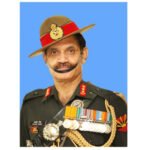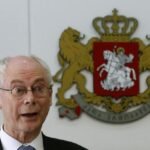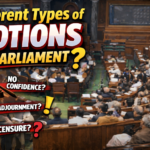NORWEGIAN GENERAL BECOMES FIRST WOMAN COMMANDER TO HEAD UN PEACEKEEPING FORCE

UN Secretary General Ban Ki-moon appointed Maj. Gen. Kristin Lund, the first woman to command a United Nations peacekeeping force — a Norwegian general who has served in Lebanon, the first Gulf War, Bosnia and Afghanistan.
Maj. Gen. Kristin Lund will replace Chinese Maj. Gen. Chao Liu on August 13 as commander of about 1,000 UN peacekeepers in Cyprus. Cyprus has been divided into a Turkish Cypriot north and a Greek Cypriot south since 1974 and talks have resumed to reunite the Mediterranean island.
REFRENCE
The United Nations(UN) is an international organization founded in 24 October 1945 after the Second World War by 51 countries committed to maintaining international peace and security, developing friendly relations among nations and promoting social progress, better living standards and human rights. It provide a forum for its 193 Member States to express their views, through the General Assembly, the Security Council, the Economic and Social Council and other bodies and committees. Arabic, Chinese, English, French, Russian and Spanish are the UN official languages.
The General Assembly is the main deliberative organ of the UN and is composed of representatives of all Member States. The work of the United Nations year-round derives largely from the mandates given by the General Assembly.
Under the Charter, the Security Council has primary responsibility for the maintenance of international peace and security. It has 15 Members, and each Member has one vote. Under the Charter, all Member States are obligated to comply with Council decisions.The Security Council takes the lead in determining the existence of a threat to the peace or act of aggression. It calls upon the parties to a dispute to settle it by peaceful means and recommends methods of adjustment or terms of settlement. In some cases, the Security Council can resort to imposing sanctions or even authorize the use of force to maintain or restore international peace and security. The Security Council also recommends to the General Assembly the appointment of the Secretary-General and the admission of new Members to the United Nations. And, together with the General Assembly, it elects the judges of the International Court of Justice. It has five permanent members, China, France, Russian Federation, the United Kingdom, and the United States, with veto power and ten non-permanent members, elected by the General Assembly for a two-year term.
The Economic and Social Council (ECOSOC), established by the UN Charter, is the principal organ to coordinate the economic, social and related work of the United Nations and the specialized agencies and institutions. Voting in the Council is by simple majority; each member has one vote.
The Trusteeship Council as one of the main organs of the United Nations and assigned to it the task of supervising the administration of Trust Territories placed under the Trusteeship System. Major goals of the System were to promote the advancement of the inhabitants of Trust Territories and their progressive development towards self-government or independence. The Trusteeship Council is made up of the five permanent members of the Security Council –China, France, Russian Federation, United Kingdom and United States. The aims of the Trusteeship System have been fulfilled to such an extent that all Trust Territories have attained self-government or independence, either as separate States or by joining neighbouring independent countries. The Trusteeship Council suspended operation on 1 November 1994, with the independence of Palau, the last remaining United Nations trust territory, on 1 October 1994. By a resolution adopted on 25 May 1994, the Council amended its rules of procedure to drop the obligation to meet annually and agreed to meet as occasion required — by its decision or the decision of its President, or at the request of a majority of its members or the General Assembly or the Security Council.
The International Court of Justice (ICJ) is the principal judicial organ of the United Nations (UN). It was established in June 1945 by the Charter of the United Nations and began work in April 1946.The seat of the Court is at the Peace Palace in The Hague (Netherlands). Of the six principal organs of the United Nations, it is the only one not located in New York (United States of America).
The Court’s role is to settle, in accordance with international law, legal disputes submitted to it by States and to give advisory opinions on legal questions referred to it by authorized United Nations organs and specialized agencies. The Court is composed of 15 judges, who are elected for terms of office of nine years by the United Nations General Assembly and the Security Council. It is assisted by a Registry, its administrative organ. Its official languages are English and French.






0 Comments